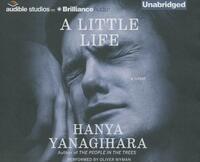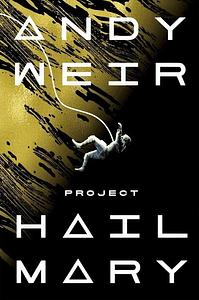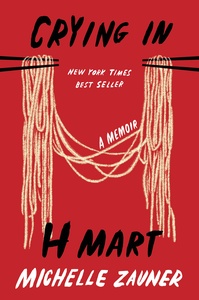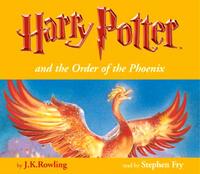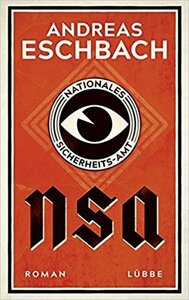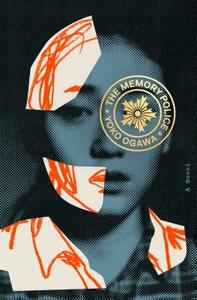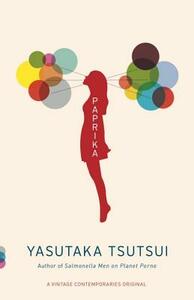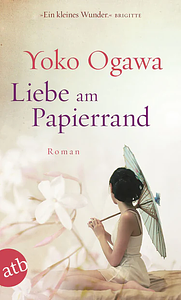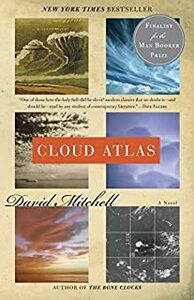Take a photo of a barcode or cover
pascalthehoff's reviews
404 reviews
I think I could never have read this in text-form. The incessantly rambling nature going into minute details of each character's emotions is maybe the novel's biggest strength, but it also works to its detriment. Sometimes – especially with reading sessions of less than (at least!) half an hour – it feels like the narrative just doesn't move on.
Usually, I'm not one for audiobooks when it comes to fiction, but this novel was perfect for this format. Especially with the outstanding performance (yes, performance) by Oliver Wyman giving each character their distinct voice and feel – in the non-dialogue narration as well.
As for the story itself, it was as moving as it was painful to read. Especially in the end, I felt like it veered a bit too much into stacking devastating events on an already dismal basis, but I guess that is the point of this novel. And in that way, it fits.
The focus on upper-class characters with seemingly infinite amounts of money to burn tainted the story a certain way. The straight-faced American Dream arc of the main characters ("they who work hard get what they deserve") feels slightly out of place in a novel from 2015. At times, this makes the novel feel like it's about rich people problems.
However, with these two things being my main criticisms, the novel deserves praise for how it doubles down on them. Yes, life can suck THAT bad sometimes. Yes, even privileged actors and lawyers aren't immune to severe emotional stress or mental illness.
A Little Life doesn't hurry to show just a little piece of its main characters' lives but their entire lives from beginning to end, not sparing a single major moment. The fact that a novel which focuses so much on its characters' inner workings always manages to keep a steady (albeit deliberately slow) pace speaks volumes about the author's capabilities of describing intangible concepts in a tangible way.
Usually, I'm not one for audiobooks when it comes to fiction, but this novel was perfect for this format. Especially with the outstanding performance (yes, performance) by Oliver Wyman giving each character their distinct voice and feel – in the non-dialogue narration as well.
As for the story itself, it was as moving as it was painful to read. Especially in the end, I felt like it veered a bit too much into stacking devastating events on an already dismal basis, but I guess that is the point of this novel. And in that way, it fits.
The focus on upper-class characters with seemingly infinite amounts of money to burn tainted the story a certain way. The straight-faced American Dream arc of the main characters ("they who work hard get what they deserve") feels slightly out of place in a novel from 2015. At times, this makes the novel feel like it's about rich people problems.
However, with these two things being my main criticisms, the novel deserves praise for how it doubles down on them. Yes, life can suck THAT bad sometimes. Yes, even privileged actors and lawyers aren't immune to severe emotional stress or mental illness.
A Little Life doesn't hurry to show just a little piece of its main characters' lives but their entire lives from beginning to end, not sparing a single major moment. The fact that a novel which focuses so much on its characters' inner workings always manages to keep a steady (albeit deliberately slow) pace speaks volumes about the author's capabilities of describing intangible concepts in a tangible way.
An insightful depiction of what it‘s like to grow up as a Korean-American between two cultures - not much more, not much less. Of course, grief and the important relationship between parents and child plays a big role too, but the dichotomy of not really being able to fully identify with either of two heritages, is definitely what makes this book worth reading.
That being said, IF you have already read a few books from Asian-American authors, the new insights you get from this one are somewhat diminished. Being a memoir (and a pretty personal one at that), Crying it H Mart can‘t compensate for that in any other overtly appealing narrative way. I know that me feeling like the book was dragging itself (despite its concise length) is a rather subjective perspective. But maybe it‘s also due to my utter disinterest in all those descriptions of food or cooking. I just don’t click food that I can‘t taste for myself, sorry.
That being said, IF you have already read a few books from Asian-American authors, the new insights you get from this one are somewhat diminished. Being a memoir (and a pretty personal one at that), Crying it H Mart can‘t compensate for that in any other overtly appealing narrative way. I know that me feeling like the book was dragging itself (despite its concise length) is a rather subjective perspective. But maybe it‘s also due to my utter disinterest in all those descriptions of food or cooking. I just don’t click food that I can‘t taste for myself, sorry.
Ich habe NSA zwar nicht fertig gelesen, bin aber trotzdem "finished" mit dem Buch, wie Goodreads den Button so schön bezeichnet. Alte Männer, die Sexszenen schreiben - grundsätzlich schon grenzwertig. Alte Männer, die Vergewaltigungsszenen schreiben - ein SEHR schmaler Grat. Aber sogar unter Vergewaltigungsszenen gibt es solche, die mit viel Fingerspitzengefühl zur Erzählung beitragen und solche, die einfach genau so geschmacklos sind wie ihr Sujet.
Allein die erste Szene dieser Art in NSA bediente auf so schonungslos ekelhafte Art einen male gaze, dass ich mich fragte, wie das kein viel größeres Thema in den Rezensionen sein kann. Kunstfreiheit schön und gut. Aber auch, wenn ich mich nicht häufig über solche Dinge empöre, wurde hier für mich eine Linie überschritten und ich möchte gar nicht überlegen, ob aus Versehen oder "künstlerischem" Vorsatz.
Beides wäre plausibel, denn auch abseits der nicht einvernehmlichen Sexszenen bleibt NSA auf dem stilistischen Niveau eines Pulp-Romans der frühen BRD - nur, dass die Romane dieser Zeit authentischer an der tatsächlichen NS-Zeit kratzten als dieses Widerkäuen generischer ZDF-Historiendramen mit Big Data auf allen paar Dutzend Seiten. Dadurch, dass der große USP der Alternate History in NSA so überraschend minimalistisch ausfällt, ist man wirklich besser beraten, einen Roman der Nachkriegszeit zu lesen. Denn wer hätte es gedacht? Nazis sind auch dann verdammt gruselig, wenn sie keine Smartphones haben.
Allein die erste Szene dieser Art in NSA bediente auf so schonungslos ekelhafte Art einen male gaze, dass ich mich fragte, wie das kein viel größeres Thema in den Rezensionen sein kann. Kunstfreiheit schön und gut. Aber auch, wenn ich mich nicht häufig über solche Dinge empöre, wurde hier für mich eine Linie überschritten und ich möchte gar nicht überlegen, ob aus Versehen oder "künstlerischem" Vorsatz.
Beides wäre plausibel, denn auch abseits der nicht einvernehmlichen Sexszenen bleibt NSA auf dem stilistischen Niveau eines Pulp-Romans der frühen BRD - nur, dass die Romane dieser Zeit authentischer an der tatsächlichen NS-Zeit kratzten als dieses Widerkäuen generischer ZDF-Historiendramen mit Big Data auf allen paar Dutzend Seiten. Dadurch, dass der große USP der Alternate History in NSA so überraschend minimalistisch ausfällt, ist man wirklich besser beraten, einen Roman der Nachkriegszeit zu lesen. Denn wer hätte es gedacht? Nazis sind auch dann verdammt gruselig, wenn sie keine Smartphones haben.
Pretty standard fare when it comes to "people living under totalitarian circumstances". Still, the magical realist setting elevates the narrative by making the oppression akin to a force of nature, or at least an enigmatic, kafkaesque phenomenon – right down to the impenetrable, larger-than-life bureaucracy.
What this novel nails is the portrayal of how oppressed people, with time, tend to adapt to even the most outrageous circumstances. Losing essential things of everyday life or skills we might see as the basis of just existing as human beings seem palatable in this world where things are not just stolen but completely erased.
Ogawa's usual calm and quiet prose contributes to this strange feeling of ambiguous complacency and peaceful tranquility.
What this novel nails is the portrayal of how oppressed people, with time, tend to adapt to even the most outrageous circumstances. Losing essential things of everyday life or skills we might see as the basis of just existing as human beings seem palatable in this world where things are not just stolen but completely erased.
Ogawa's usual calm and quiet prose contributes to this strange feeling of ambiguous complacency and peaceful tranquility.
